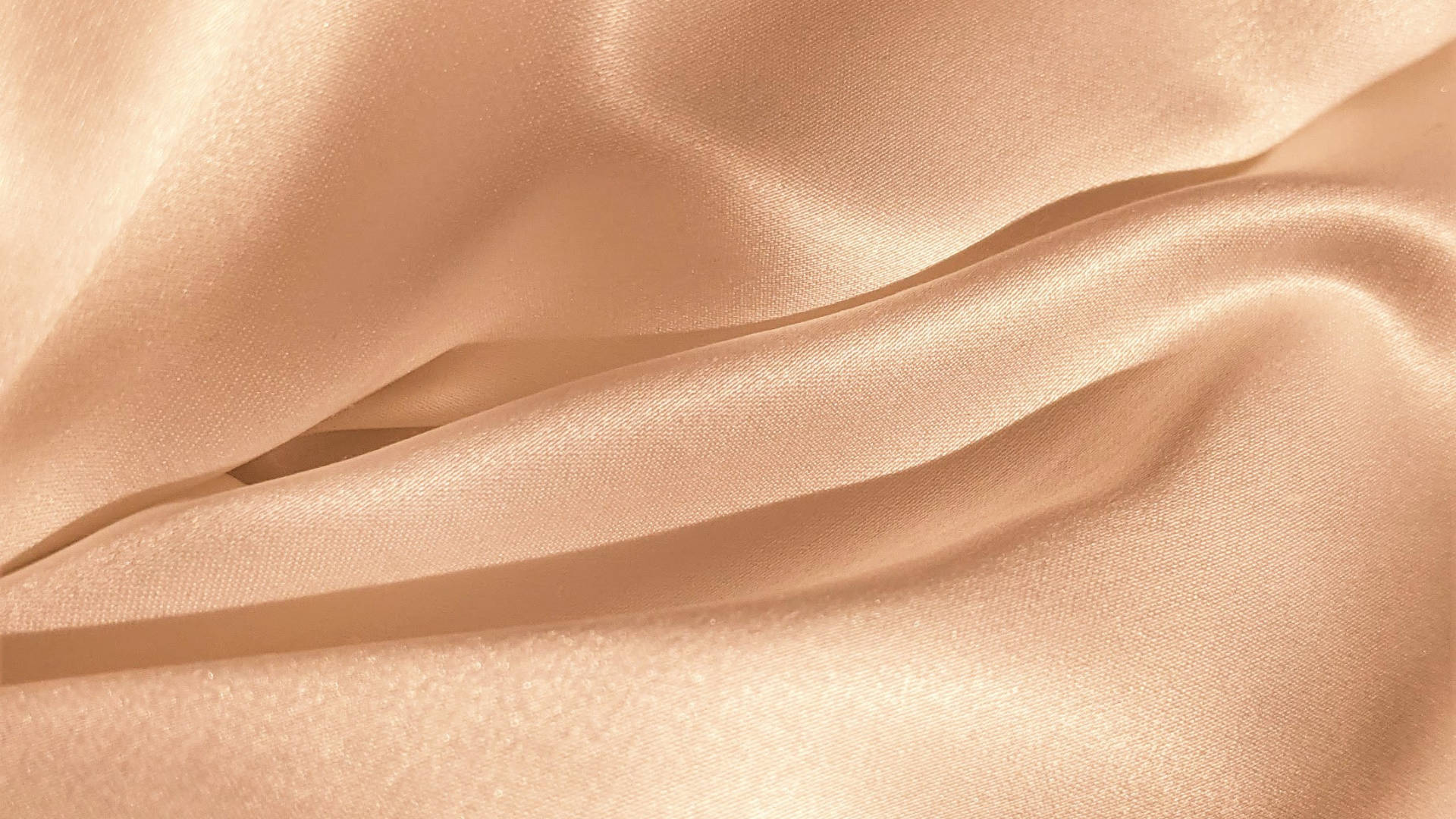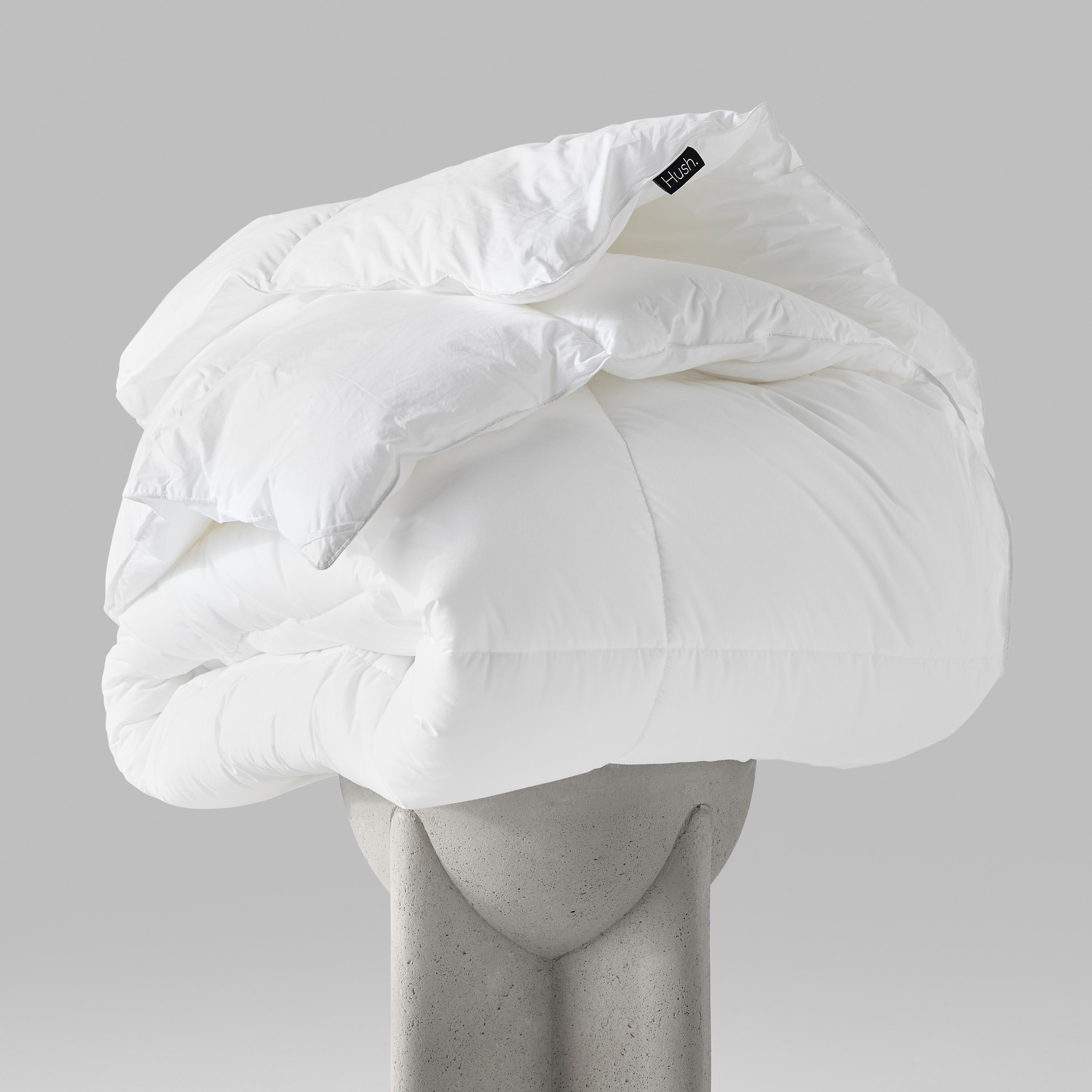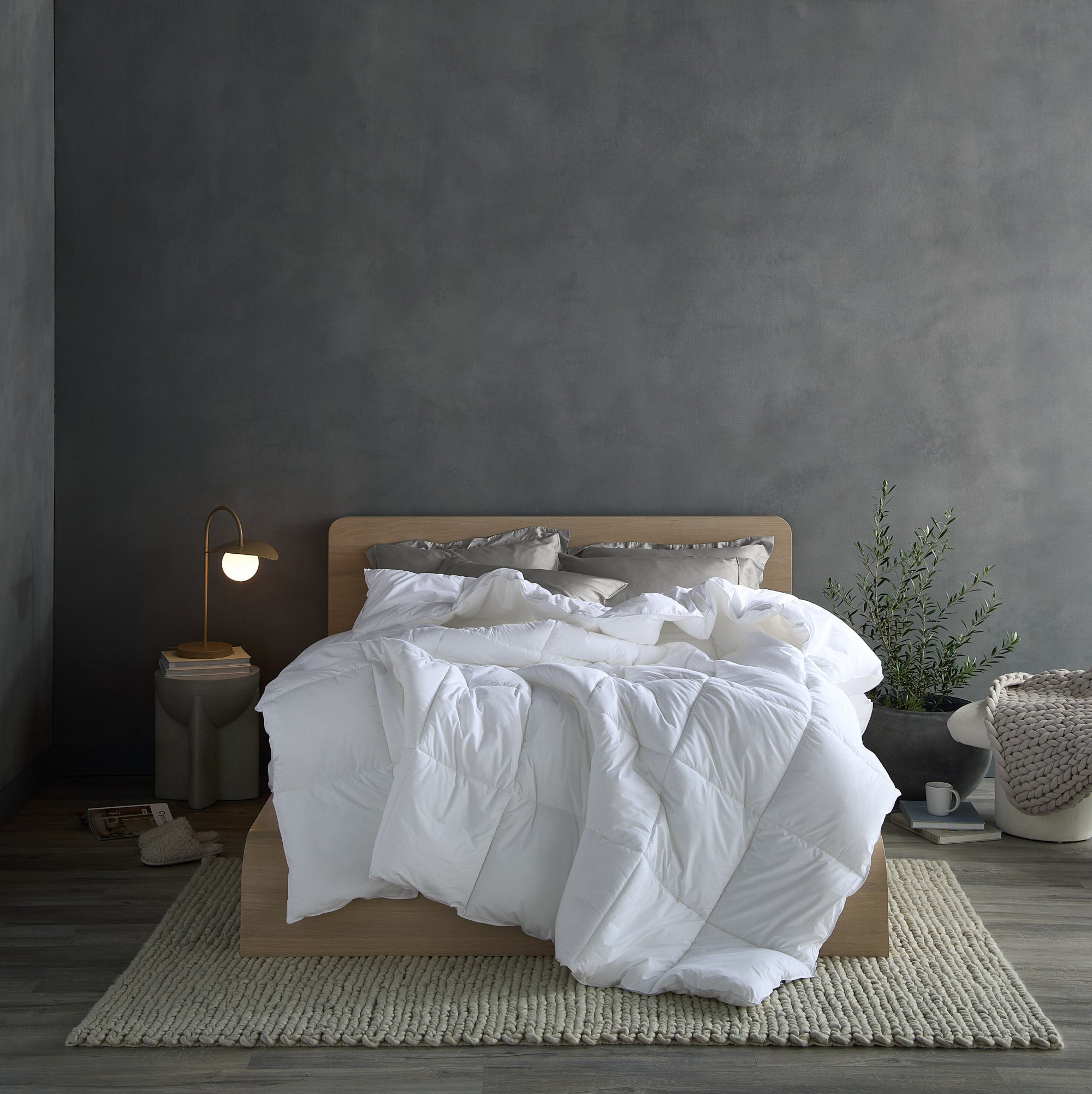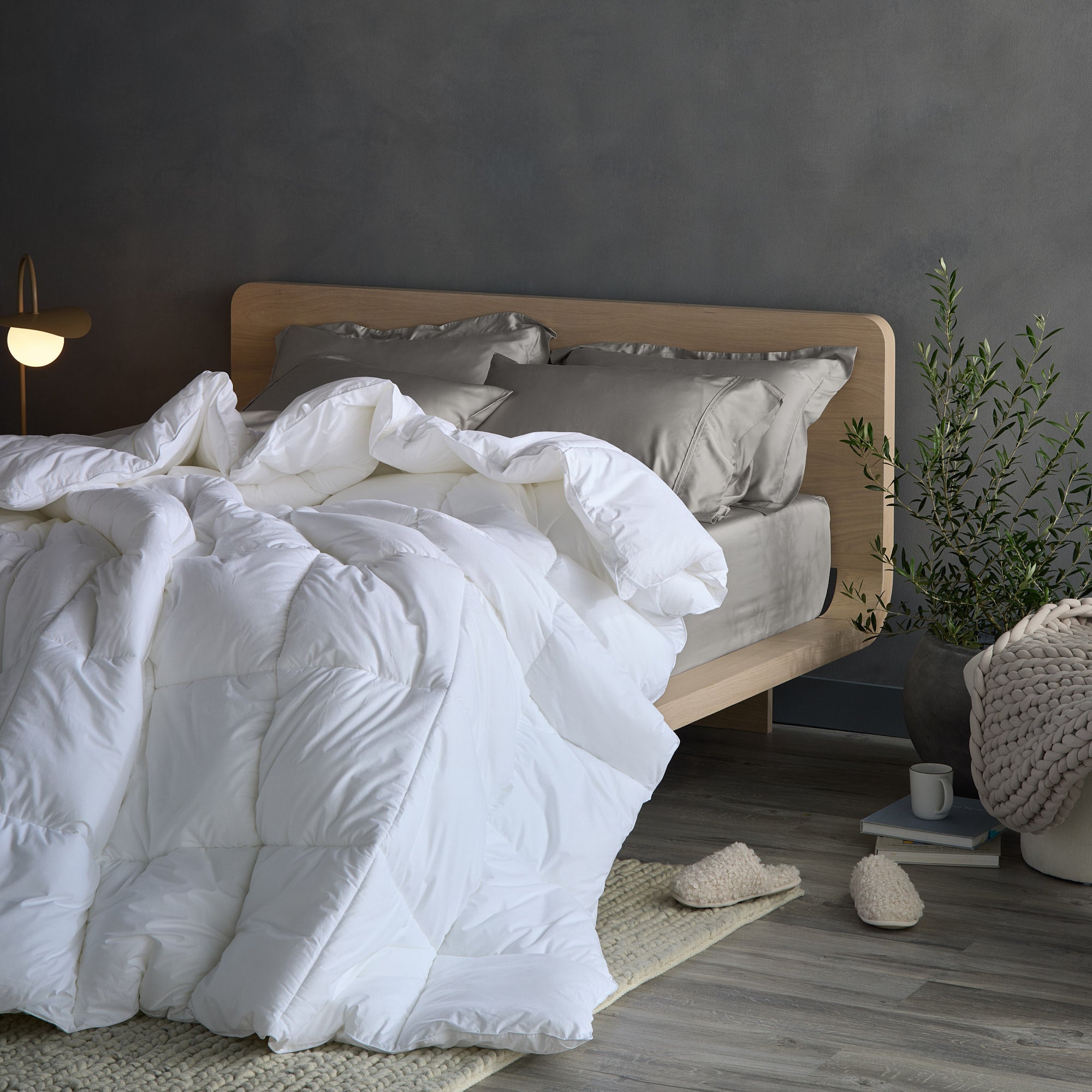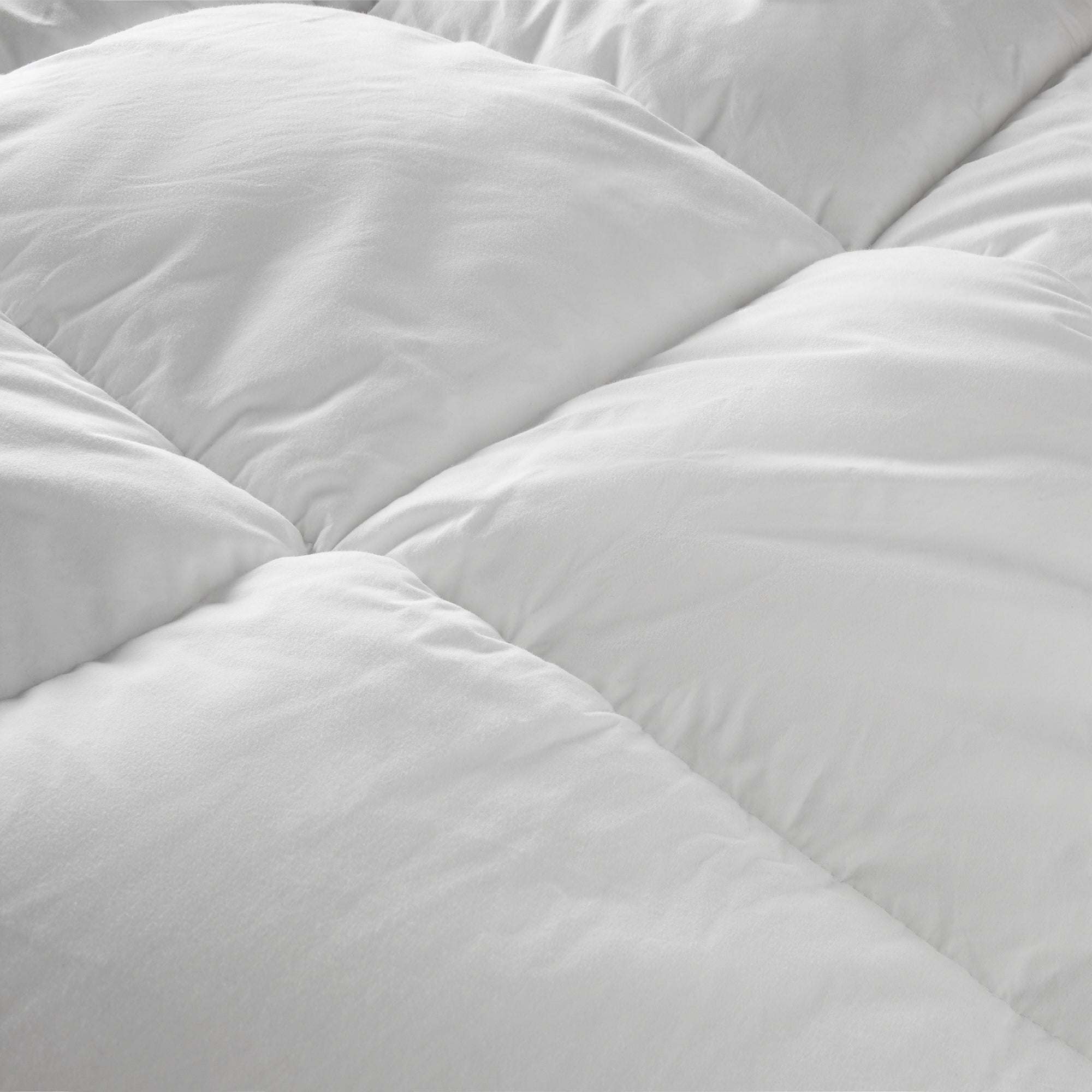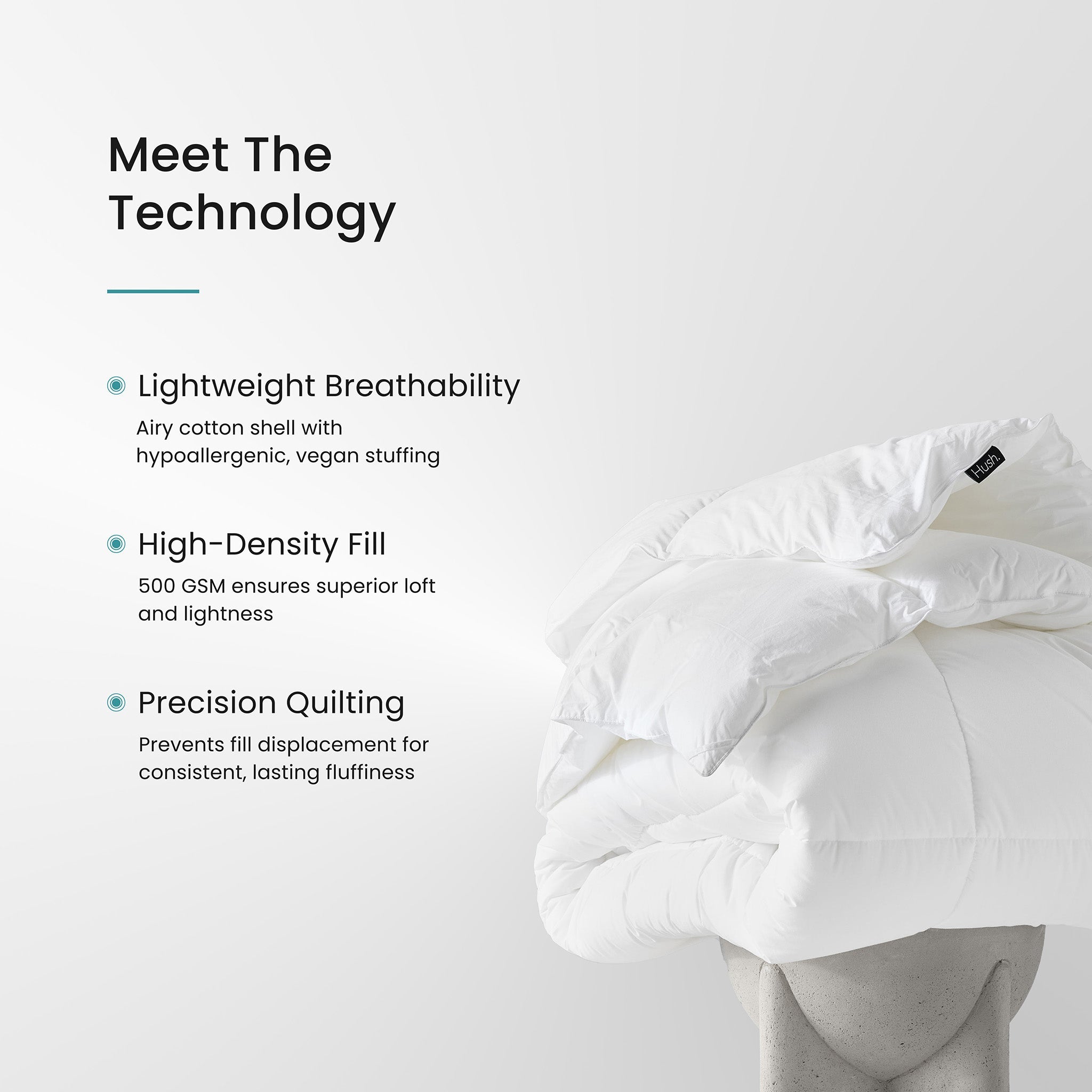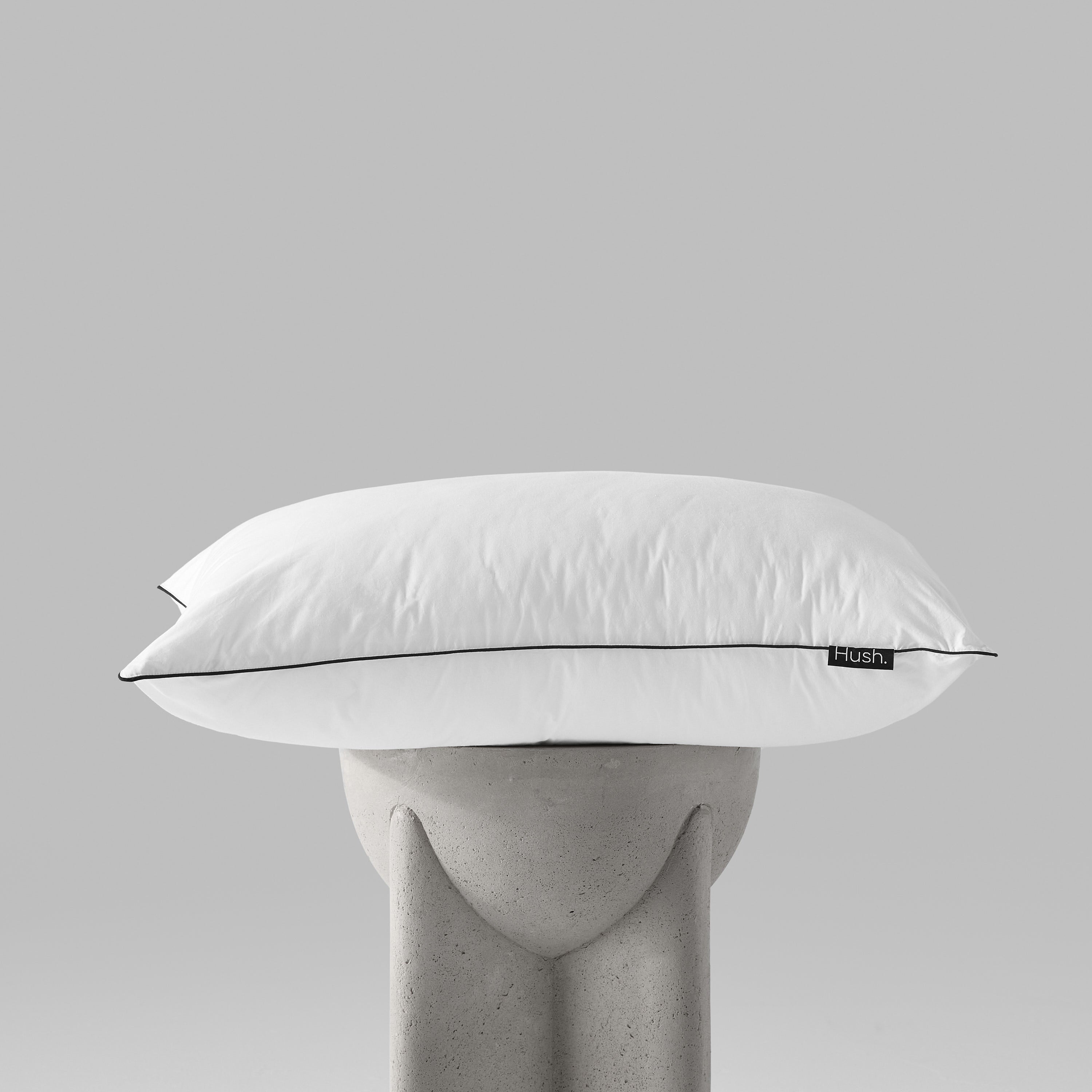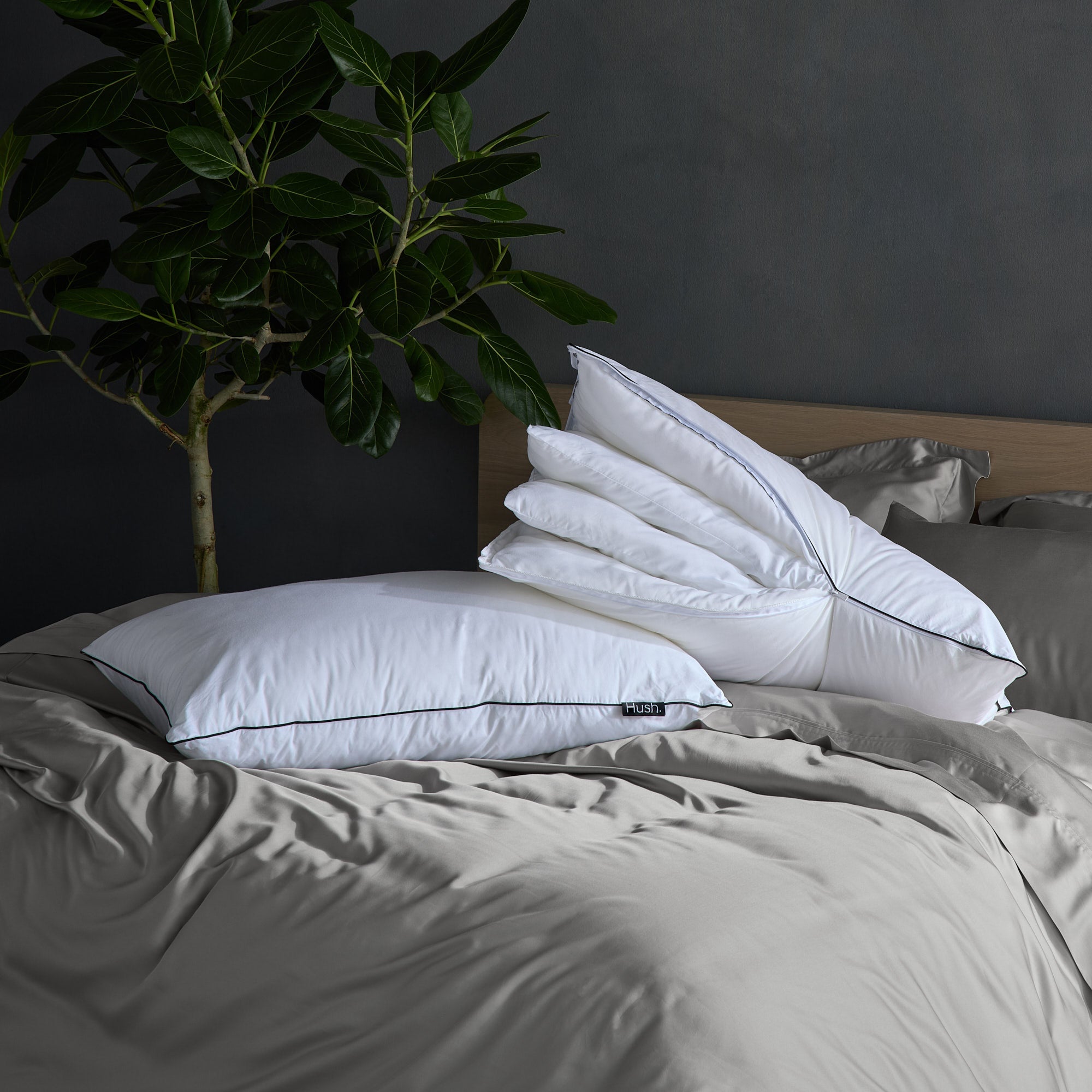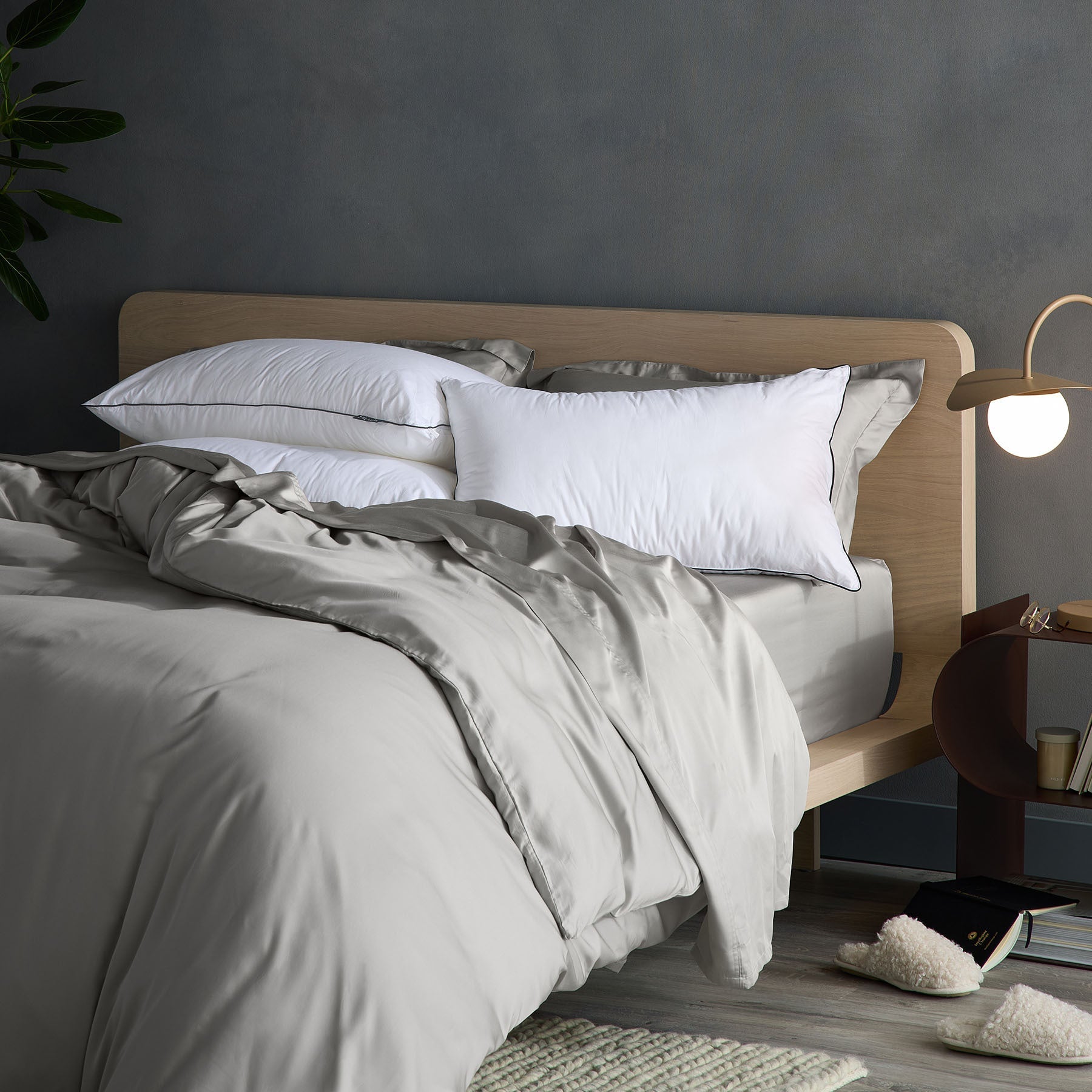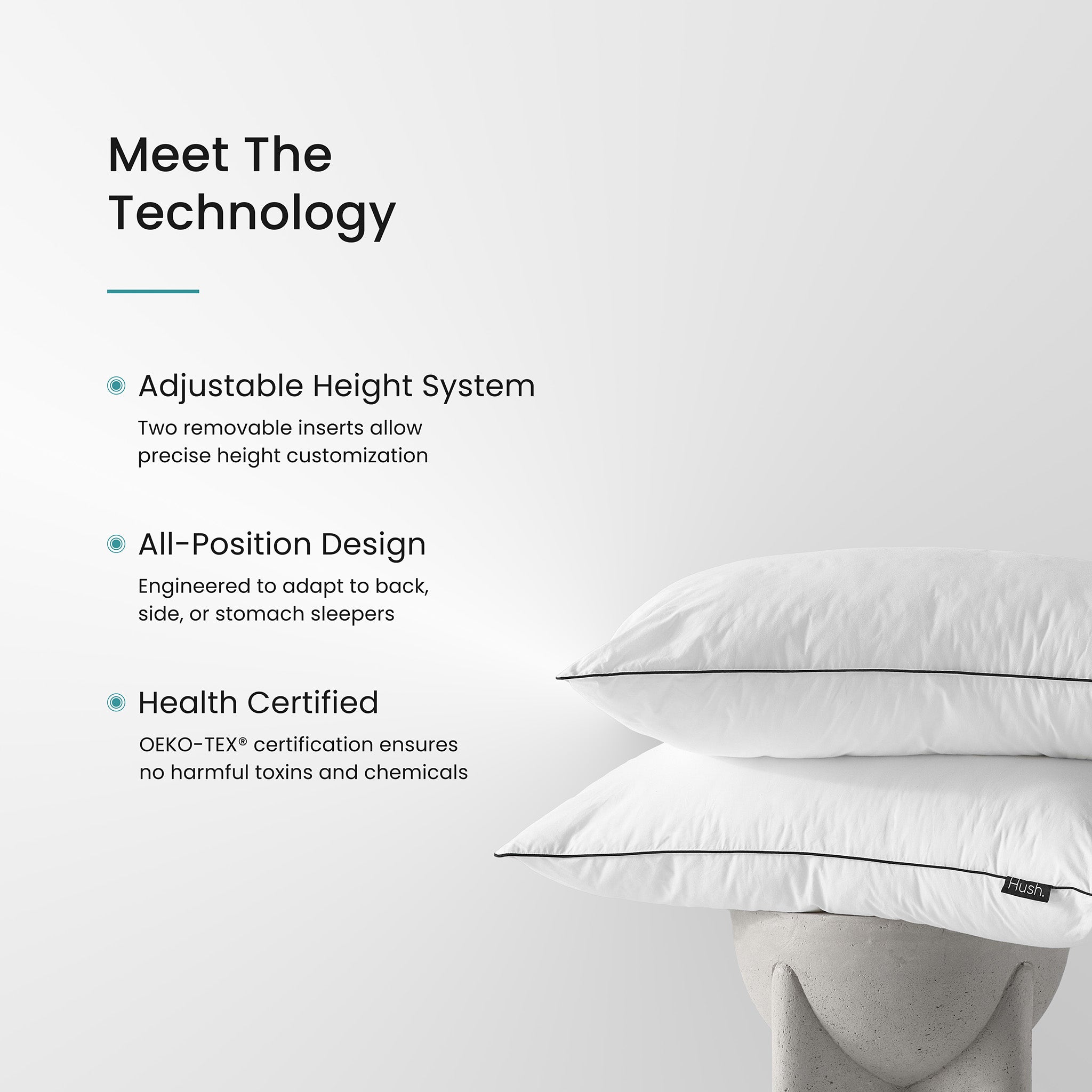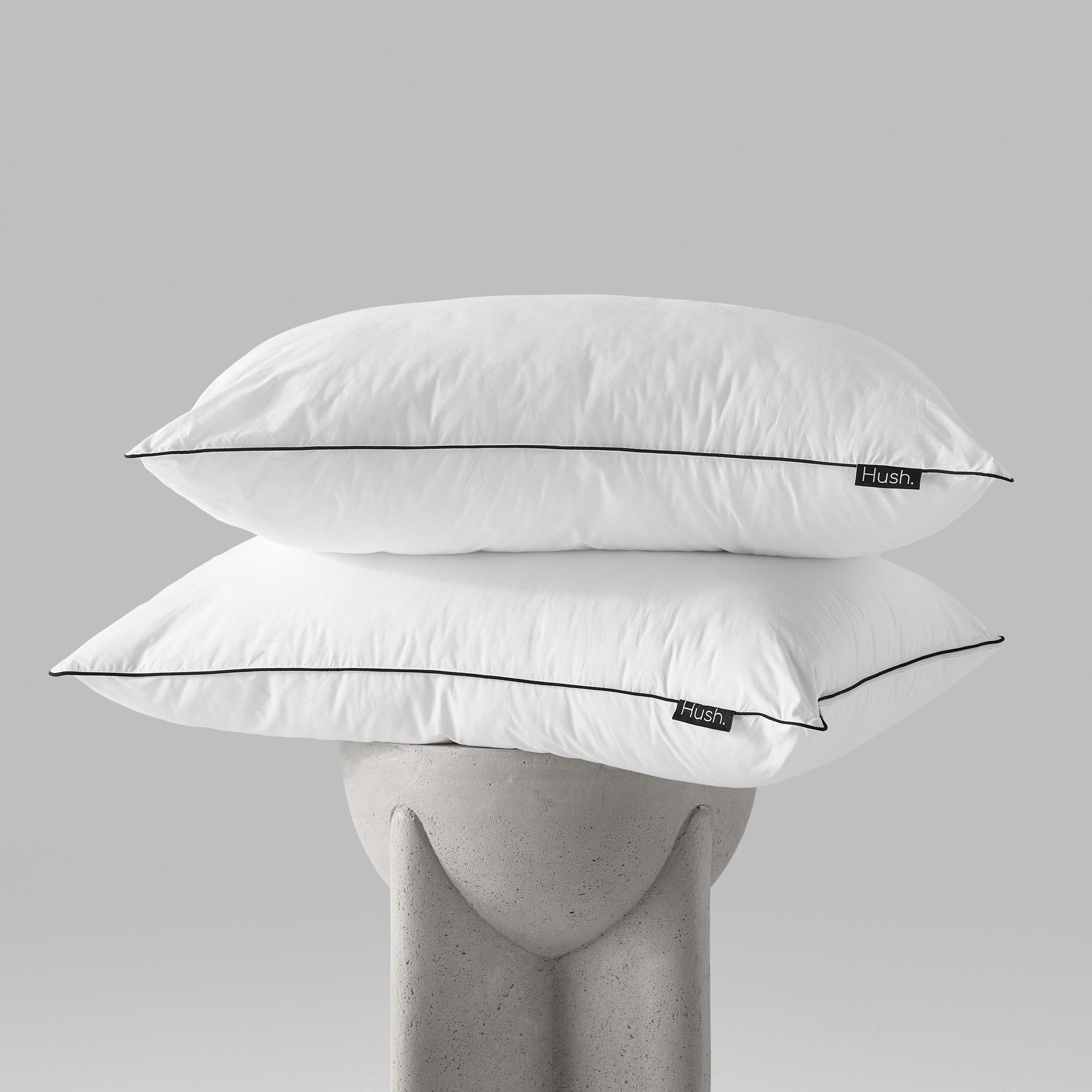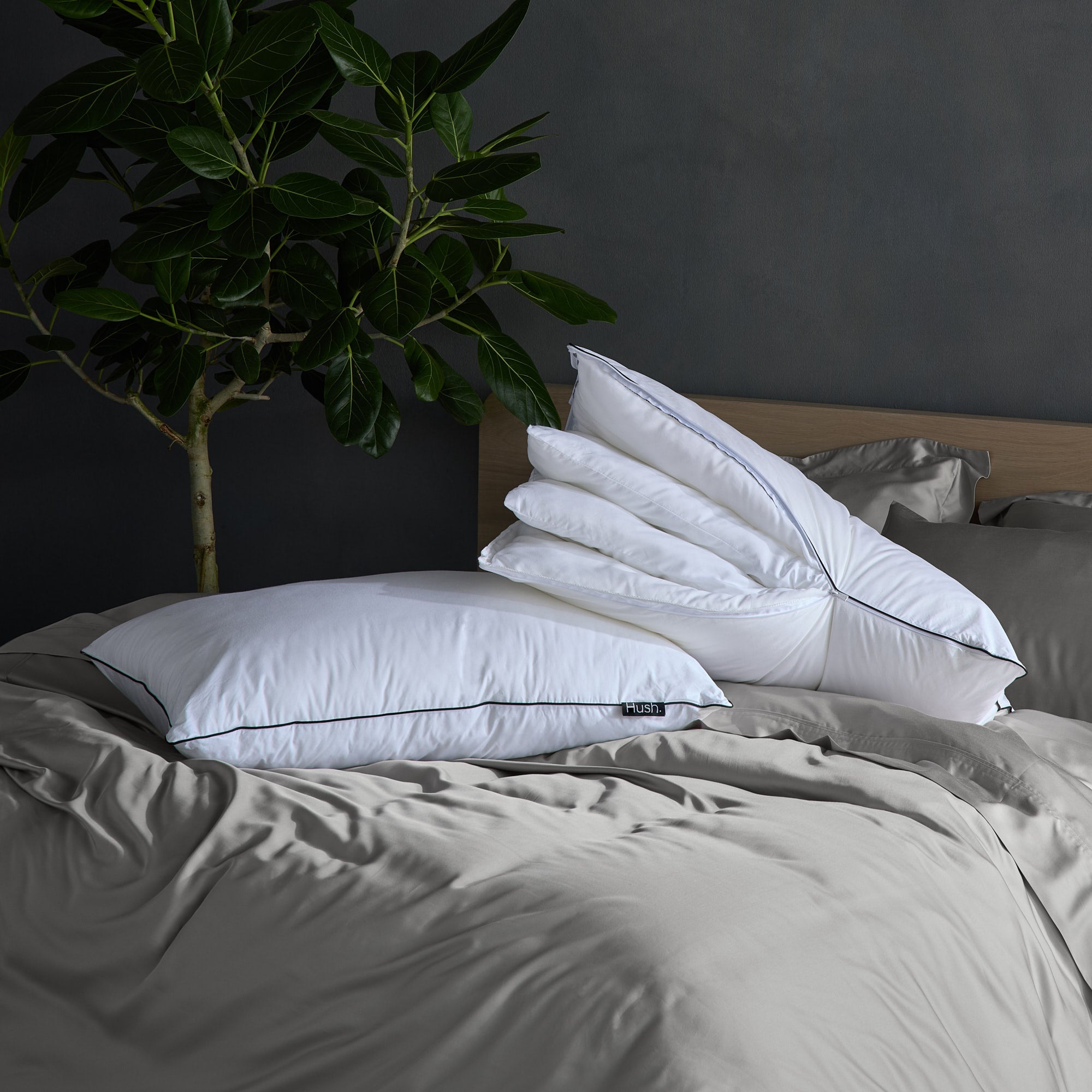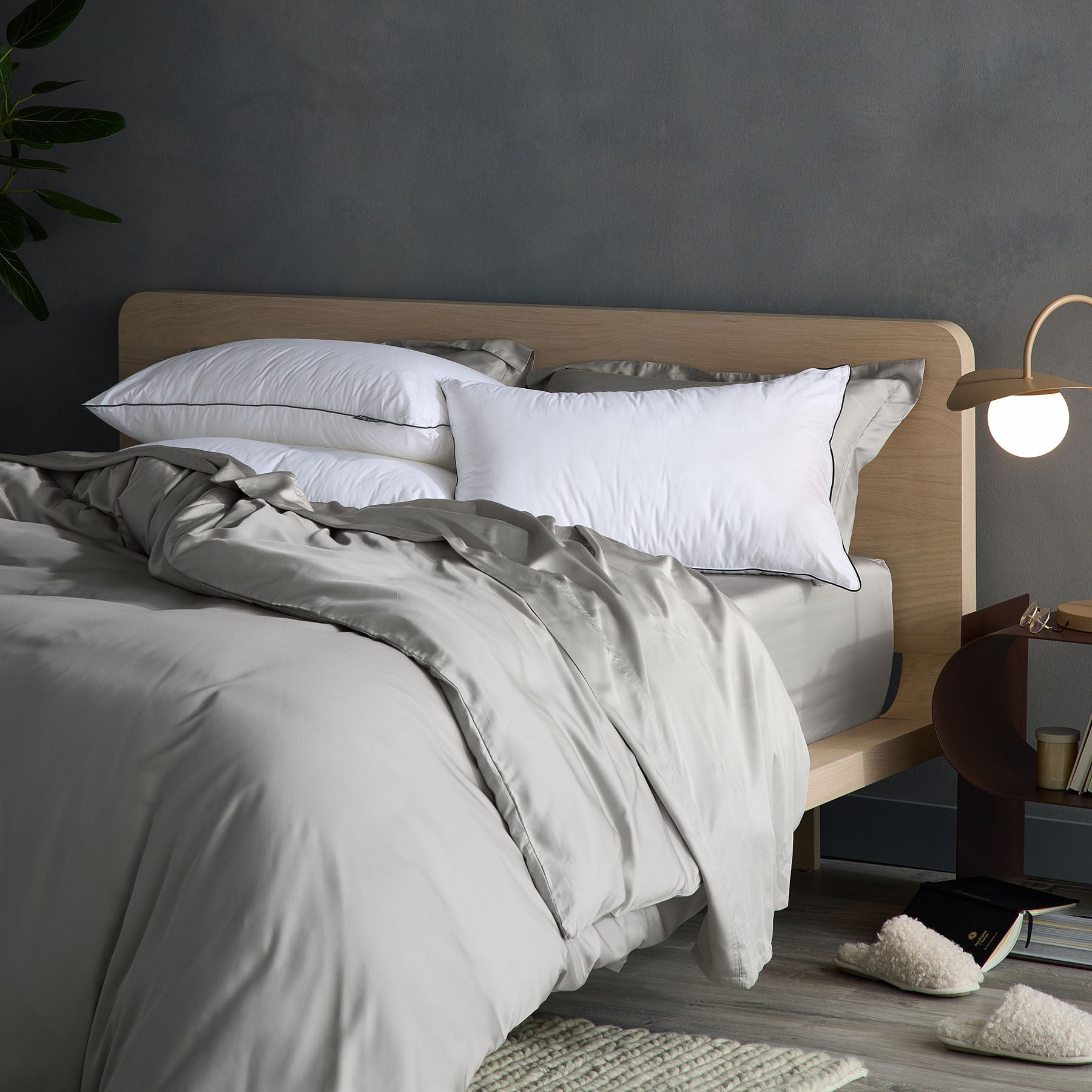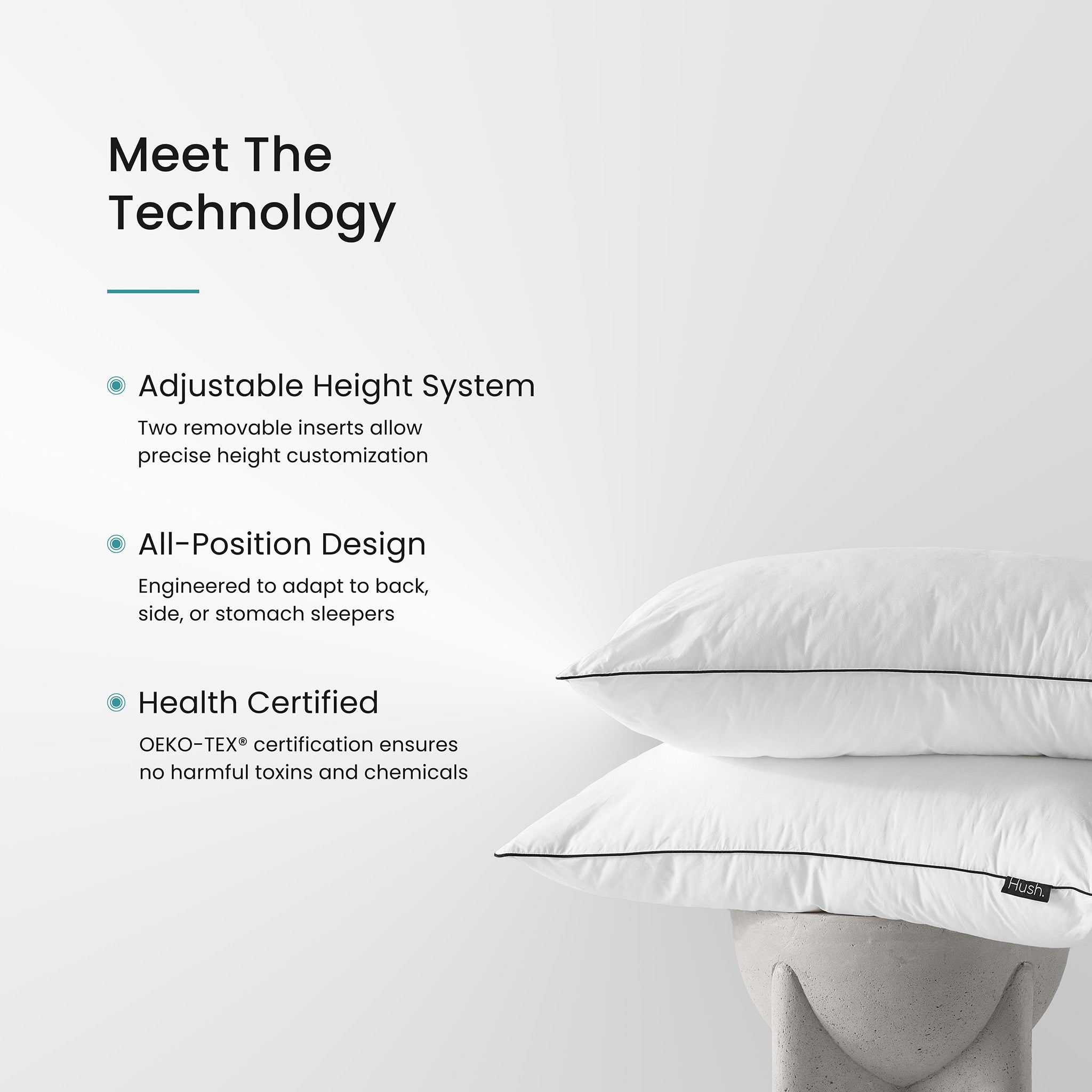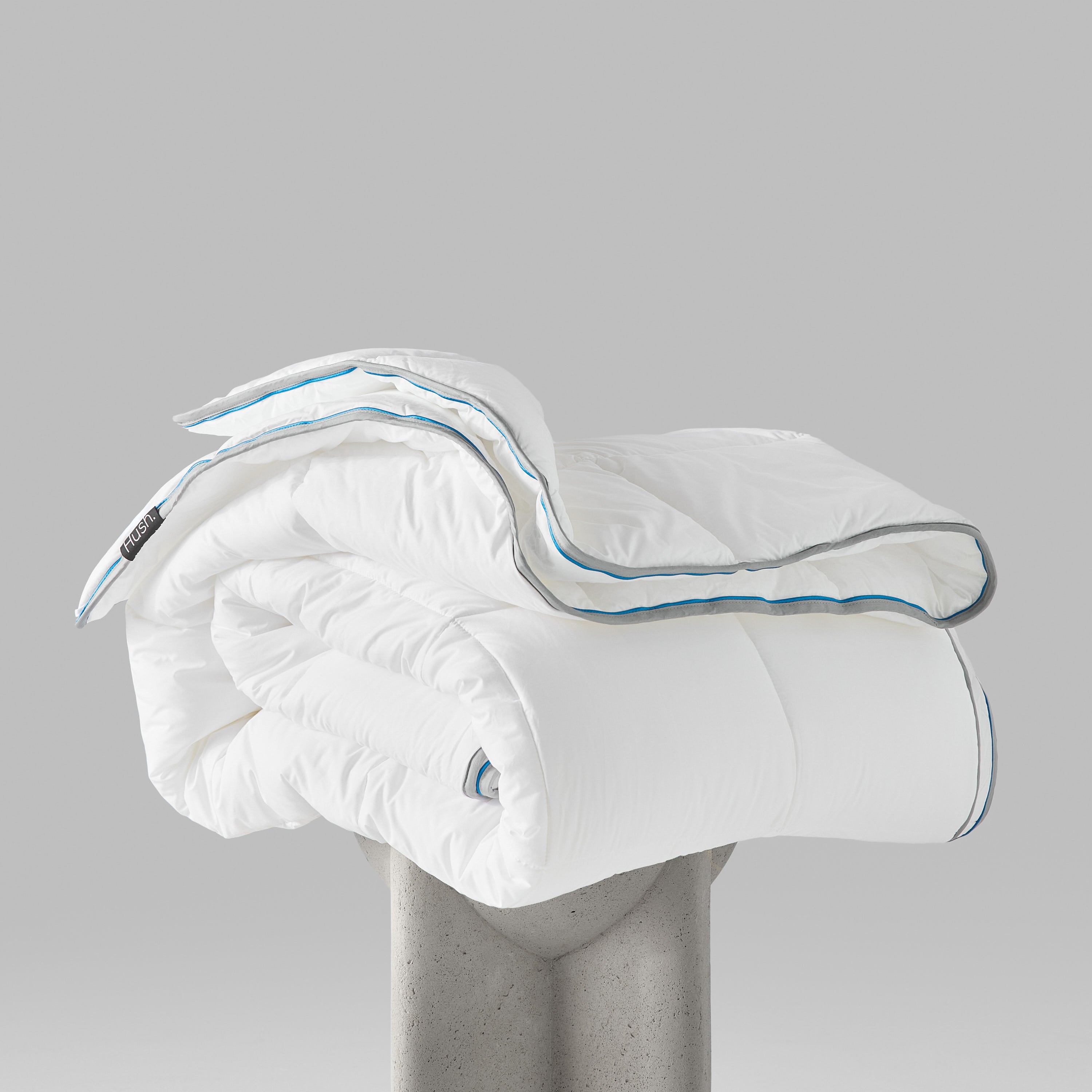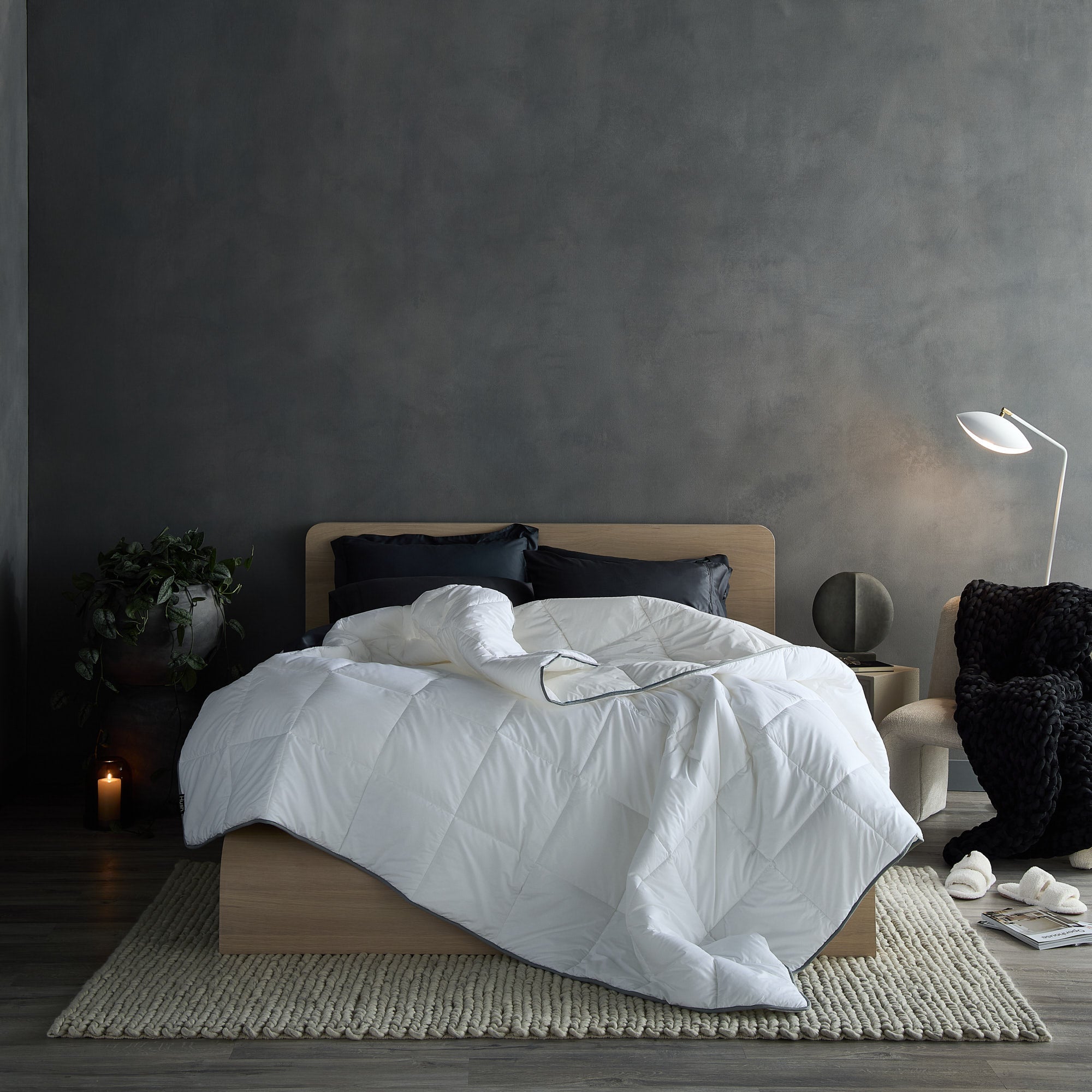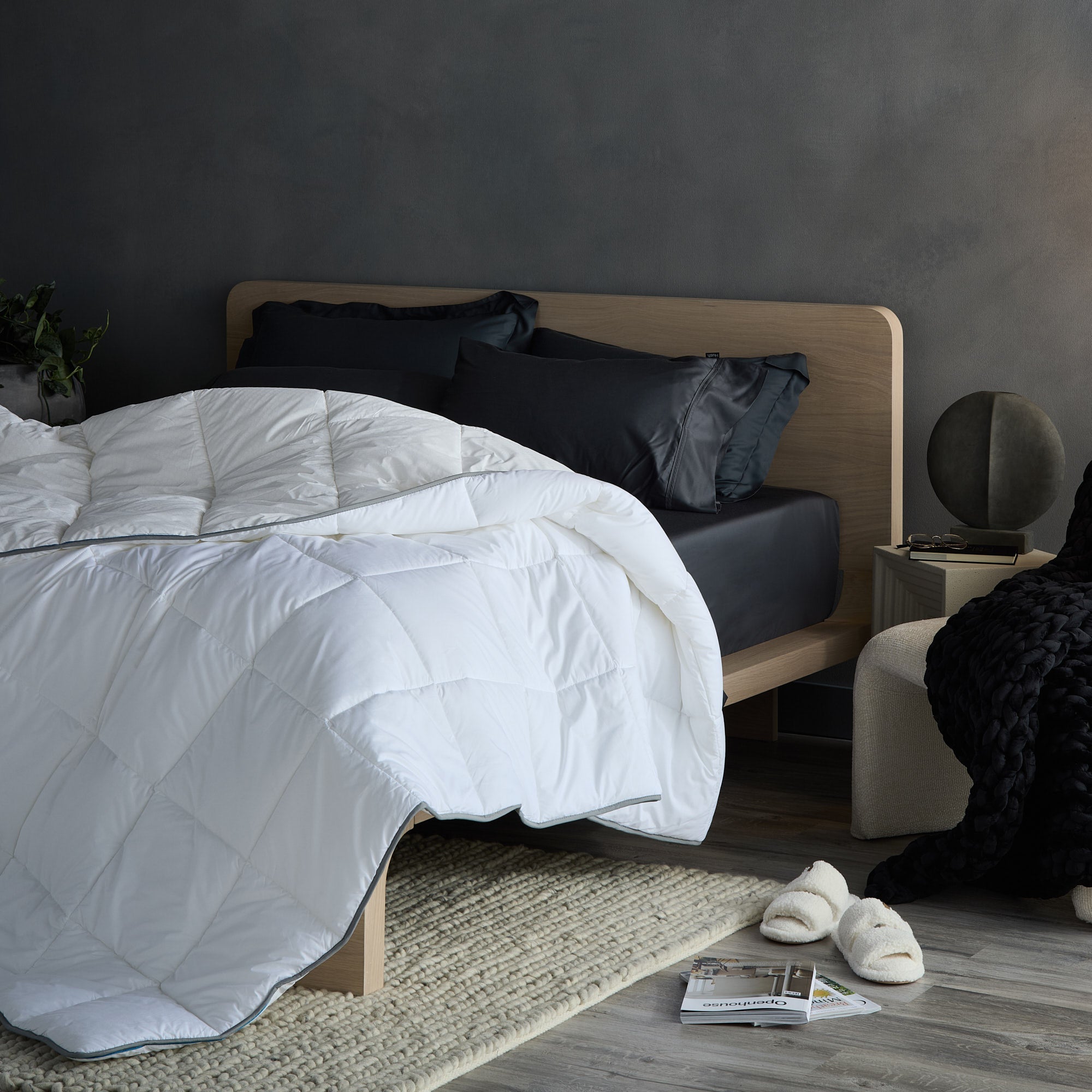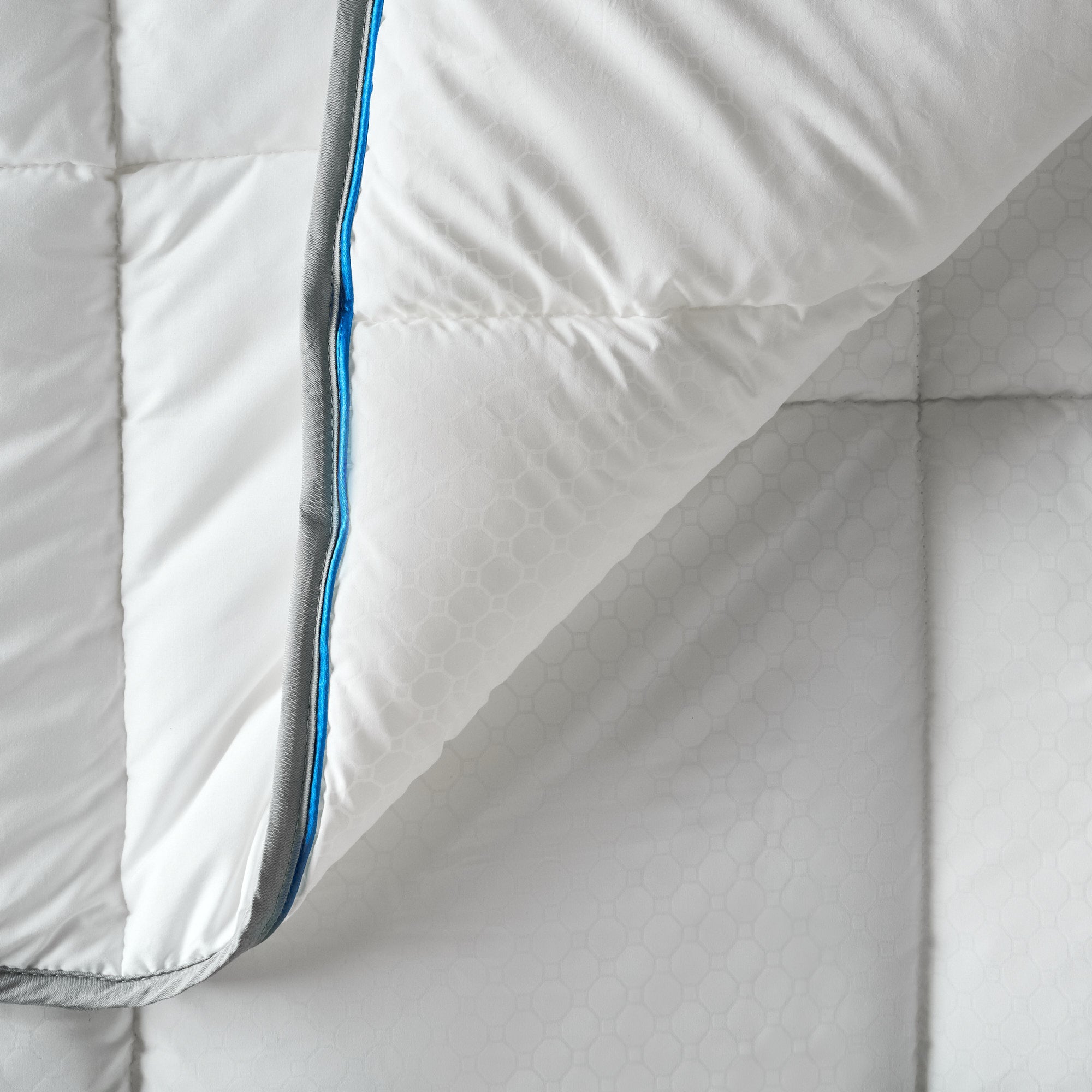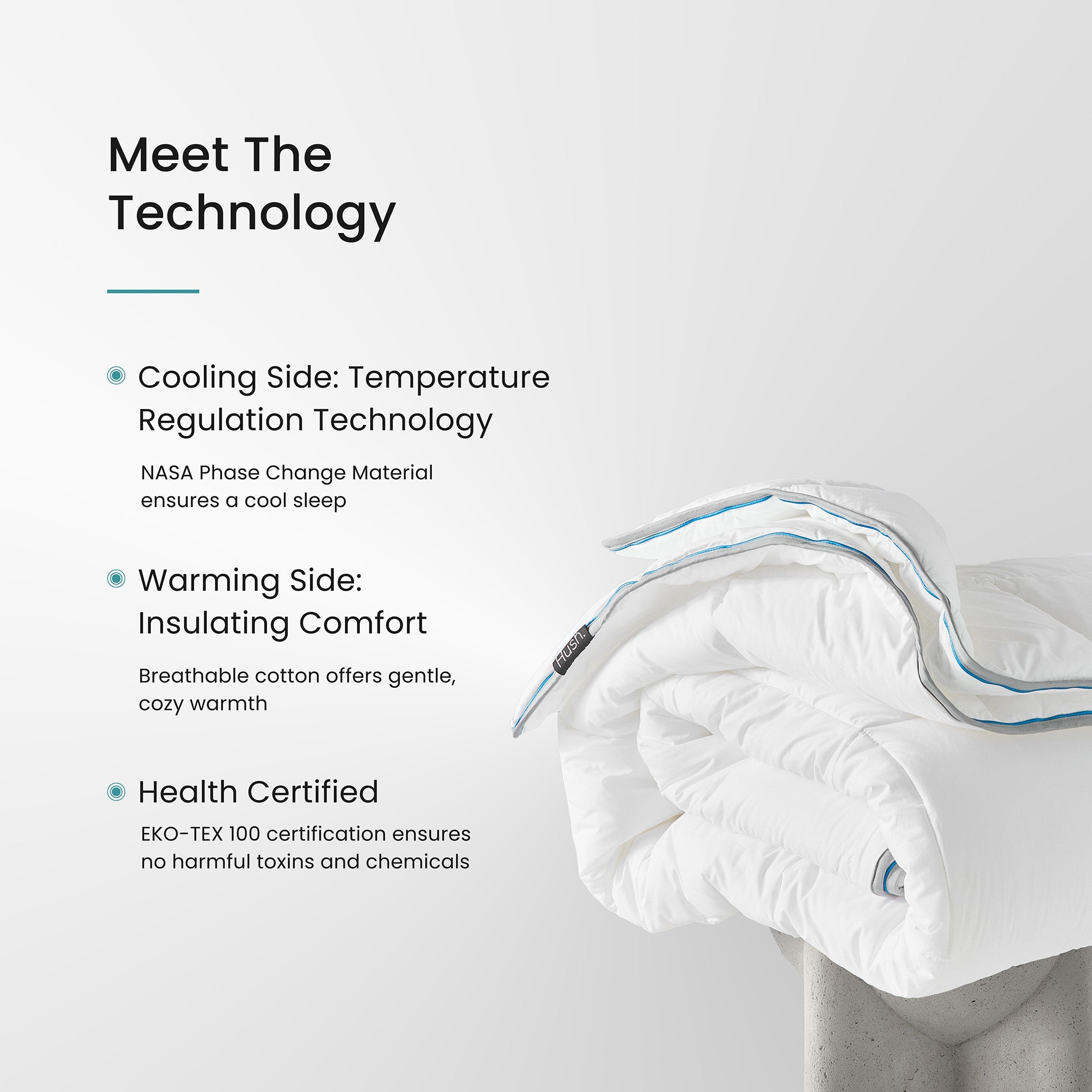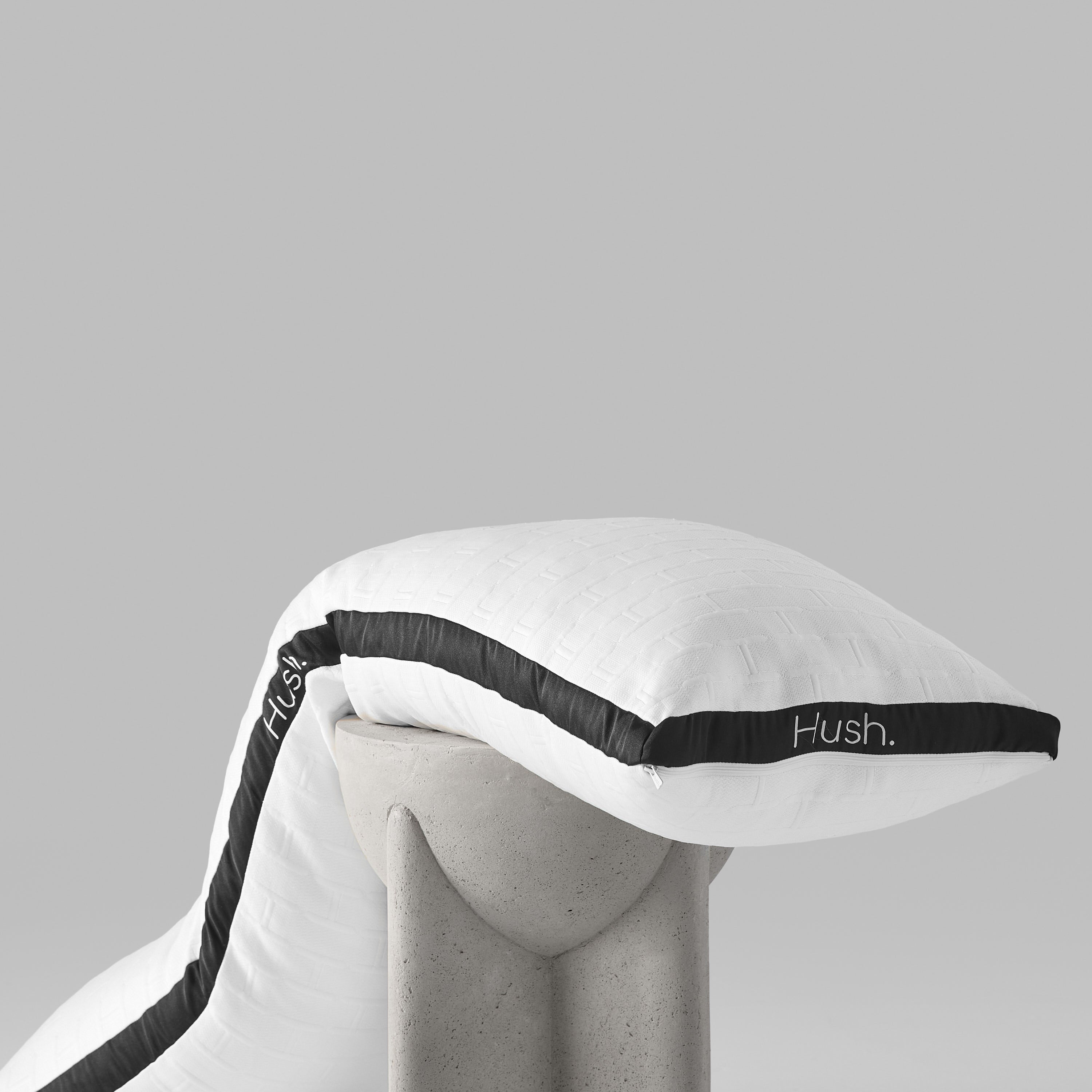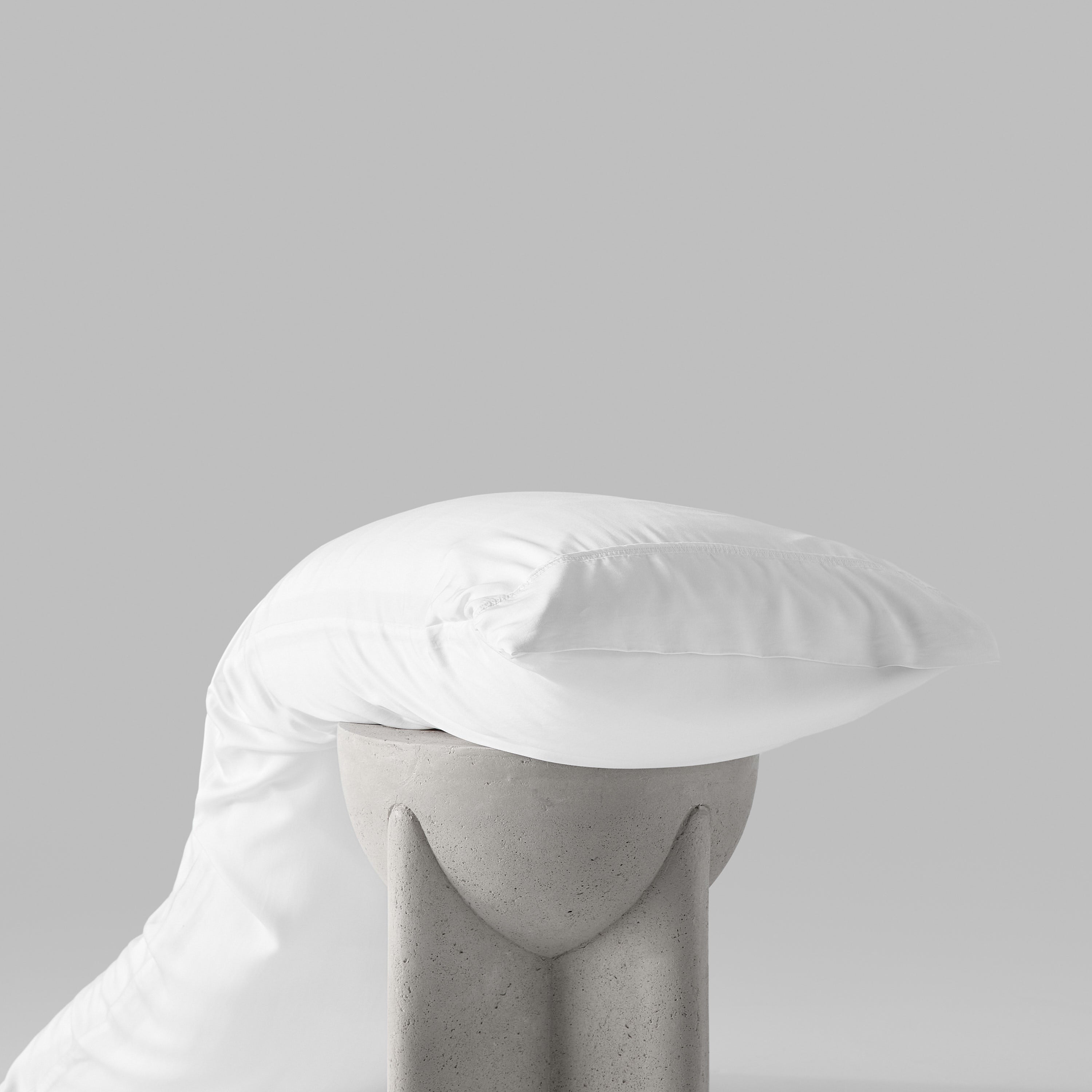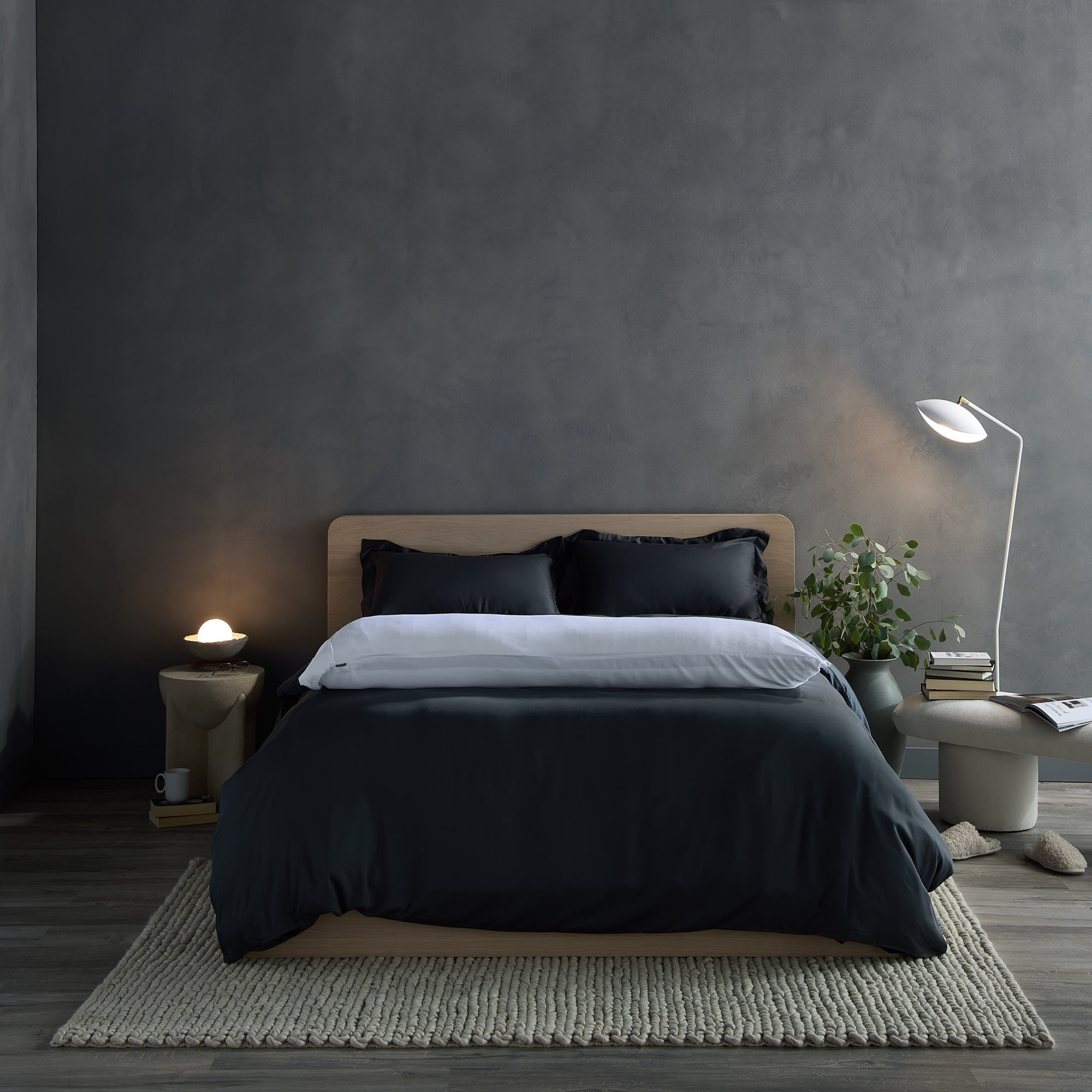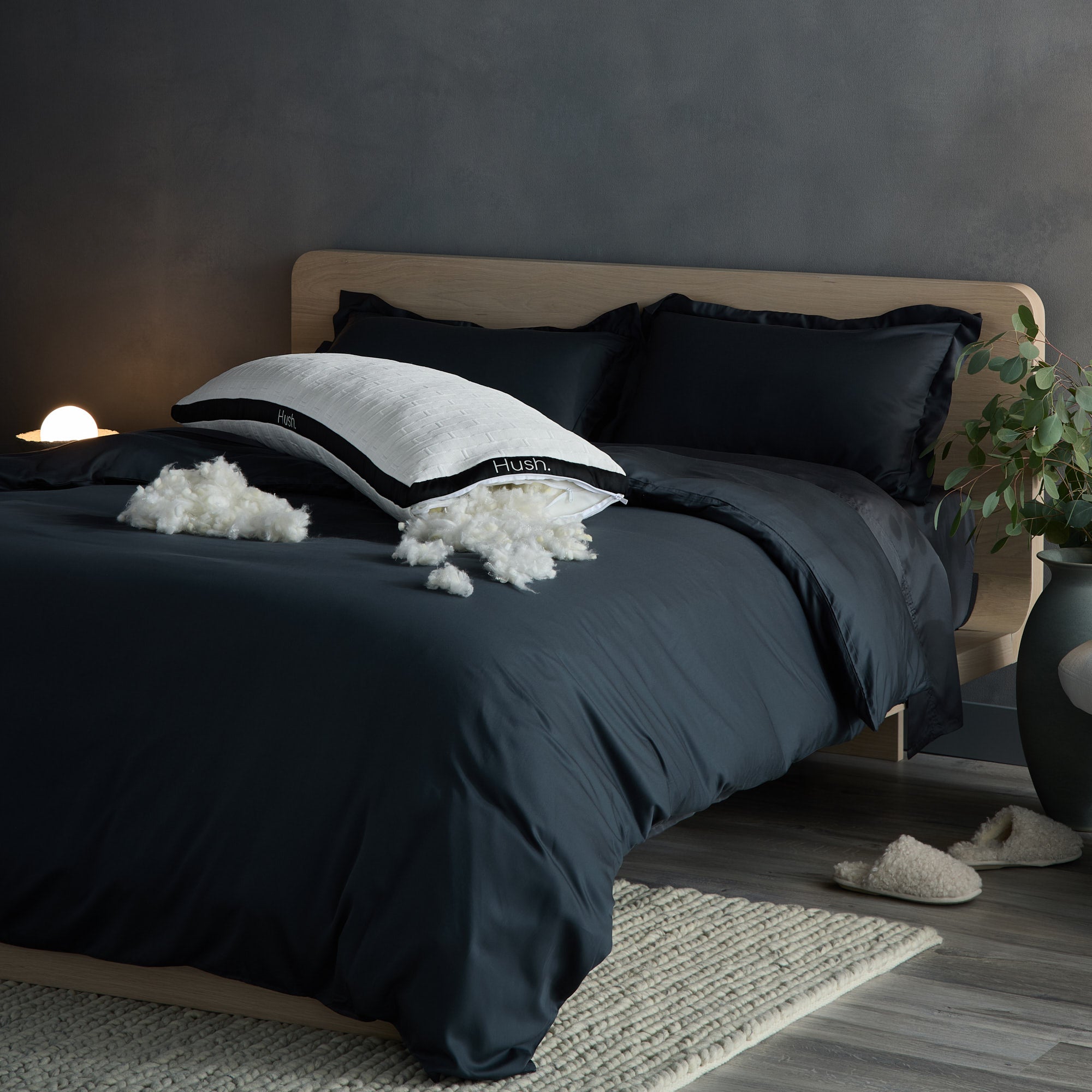Silk and bamboo are two of the most popular materials for bed sheets, and with good reason. Both fabrics have numerous benefits that make them excellent materials for bedding. But they each offer different advantages, and many reviewers disagree on which is most comfortable. This article offers a detailed look at the great “bamboo sheets vs. silk” debate.
Since we offer both bamboo and silk sleep products here at Hush, we know both materials like the backs of our pillows. We'll explain how they compare on a variety of factors, reviewing how they feel for different types of sleepers. By the time we're done, you'll have a much better sense of whether silk or bamboo sheets are best for you.
At a glance:
Bamboo Sheets: An Overview

How exactly do you make sheets out of bamboo canes? Thankfully, those stiff wooden stalks only provide the starting point for bamboo bedding. They're mashed into pulp and the natural bamboo fibers are spun into a soft, breathable fabric before they become bed sheets.
Since this process requires modern technology, bamboo fabric is a newcomer compared to materials like cotton. However, it's growing in popularity because it's so soft, lightweight, and absorbent. The highly sustainable nature of bamboo cultivation also appeals to environmentally conscious customers.
Almost all bamboo fabrics fall into one of two categories: bamboo viscose and bamboo lyocell. They're virtually the same in terms of feel and durability - the main difference is in how they're produced.
Bamboo lyocell can be made with a closed-loop system that recycles water and chemicals, so some consider it more eco-friendly. However, not all lyocell is made this way, and the ecological impact also depends greatly on how the raw bamboo is grown. Plus, bamboo lyocell is more expensive.
No matter which you prefer, both types of bamboo bedding are more sustainable than traditional fabrics like cotton or nylon. Silk is a more eco-friendly textile since the caterpillars that produce it are a renewable resource, but it comes with animal welfare concerns (more on this below).
Silk Sheets: An Overview

Silk bedding needs very little introduction. A natural fabric harvested from the fibrous cocoons of moths, silk has been prized as a luxury material for thousands of years. The threads are remarkably sturdy, slender, and smooth. Silk sheets also have a distinctive shimmer that adds to their visual appeal.
Silk can be produced by many different insects, but the softest and most durable comes from the domestic silk moth. This species has been bred for more than 5,000 years to produce the highest-quality threads. Since these silkworms are raised on a steady diet of mulberry leaves, the resulting fabric is often called mulberry silk.
There are a few alternatives to mulberry silk, including various types of "wild silk" sourced from non-cultivated caterpillars. Some people prefer ethical silk, AKA ahimsa silk, which is harvested without killing the insects that make it.
Silk is usually ranked according to thickness, using a measurement called the momme weight. Most experts recommend choosing silk sheets between 18 and 20 momme. Lighter sheets tend to be more transparent and fragile, while heavier ones may not drape well.
Now that we've covered the basics, let's get into our side-by-side comparison of bamboo and silk sheets.
Softness

Silk is one of the softest fabrics on the planet, which makes it ideal for people with sensitive skin or hair. Thanks to their sheer, glossy texture, silk sheets glide over your skin like a gentle breeze. No other bedding can quite match silk sheets for pure softness.
The best bamboo sheets can come surprisingly close, though. Bamboo viscose fibers have a natural smoothness that can be enhanced by the right weave and finish. Our Hush Iced sheets, for example, have a shimmery sateen weave, and we press them between industrial graphite rollers to flatten out any tiny irregularities in the fabric. As a result, they have a buttery-soft feel that's comparable to silk.
Cooling

Since they're made of a highly breathable fabric, bamboo sheets are great at releasing body heat and helping you cool off. They're also among the very best sheets for night sweats because they wick moisture away from your skin.
Silk sheets can feel somewhat cool to the touch thanks to their sheer texture. However, they’re fairly heavy and have a tight weave that holds in lots of heat. Thinner silk sheets are a bit cooler, but they're also generally less durable and lower in overall quality. If you're a hot sleeper weighing the merits of bamboo vs. silk sheets, our advice is to go with bamboo.
Durability

Silk is a delicate fabric that can easily snag and rip on things like fingernails, jewelry, and buttons, spoiling its shimmery beauty. It's also easy to permanently stretch the fibers. Higher-quality silk isn't quite as fragile, but you still have to handle it with care.
Silk sheets also stain more easily than bamboo, and when they get dirty, they can't always be machine washed. Bamboo fabric, in contrast, can go through a gentle laundry cycle, and it stands up well to everyday wear and tear.
Silk does benefit from its natural resistance to pilling. Bamboo sheets are more likely to develop tiny lumps of fabric if they're not made from high-quality fibers. (For the record, Hush is obsessive about sourcing the most durable bamboo viscose, and our bamboo sheets have earned the highest possible grade of pilling resistance.)
Sustainability

Bamboo is a more sustainable fabric than silk. It grows quickly and doesn't require any pesticides or fertilizers to thrive. Silk production, on the other hand, takes large amounts of water and energy. And unlike bamboo, silk sheets are less than ideal from an animal welfare perspective — producing the fabric generally means killing caterpillars.
However, simply buying bamboo sheets doesn't guarantee that you're making an eco-friendly choice. Some types of bamboo textile are made using huge amounts of harsh chemicals, and not all bamboo farming is equally sustainable. When buying products made from bamboo, check that it's organically grown and responsibly produced.
Cost
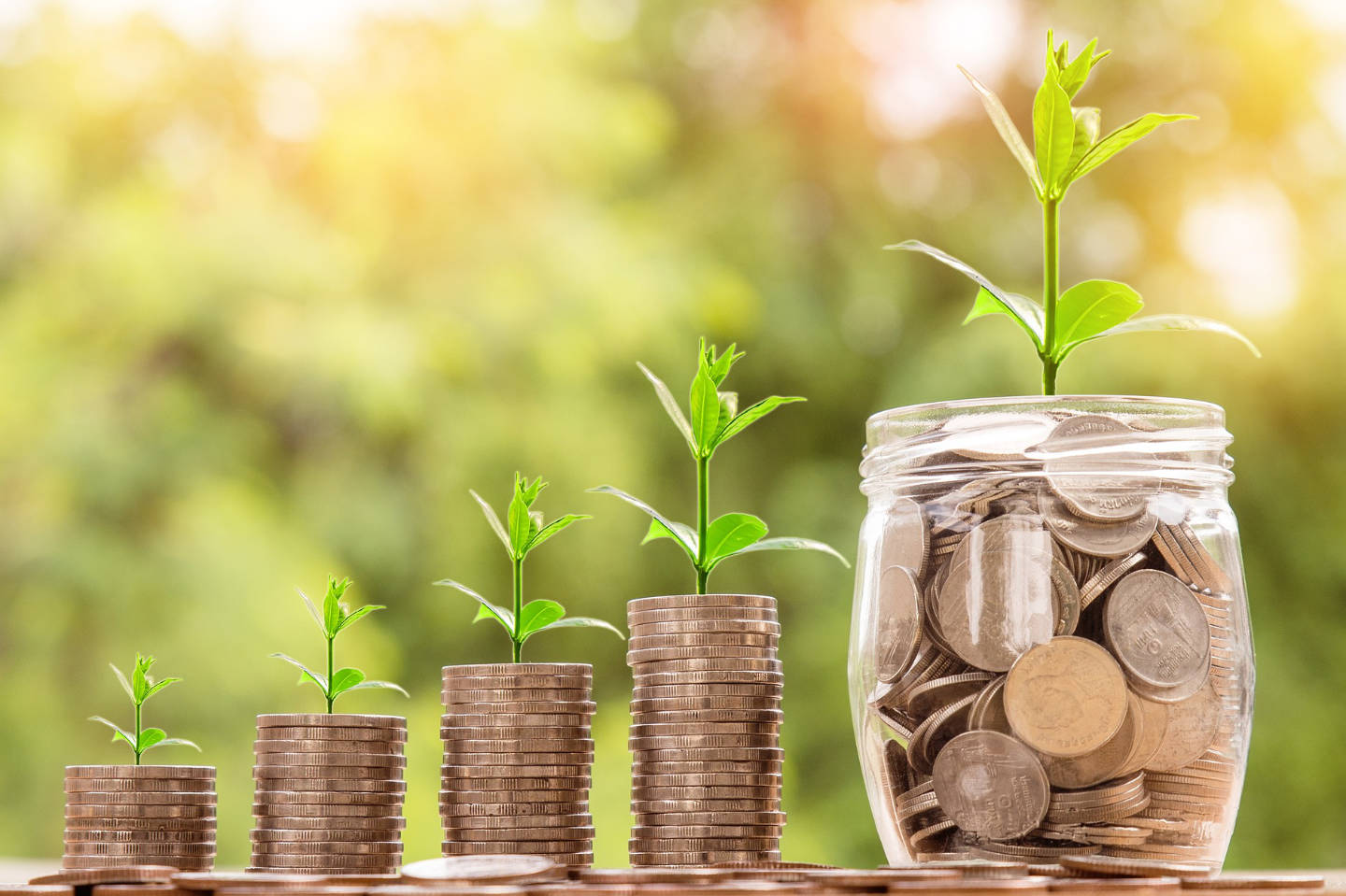
In a perfect world, everyone would get the best sheets possible, but sometimes the question of bamboo vs. silk comes down to cost. If you're on a budget, bamboo is definitely the way to go.
High-quality silk sheets can easily cost more than $400. Meanwhile, you can find fantastic bamboo sheets for less than half that amount. Why such a steep difference between bamboo and silk prices? Maybe because it takes more than 5,000 moth cocoons to make one set of silk sheets!
Hypoallergenic Properties

One of the main benefits of both bamboo and silk is that they're hypoallergenic. That makes them ideal for people with allergies or sensitive skin.
Silk is almost entirely composed of just two natural proteins, neither of which are common allergens. And dust mites, a notorious source of congestion and eye irritation, have a hard time living in silk bedding because the fabric is so tightly woven. Silk sheets are among the best options for people with allergies.
But there's also evidence that bamboo has hypoallergenic and antibacterial properties. Bamboo sheets also wick moisture away, and less dampness in your bedding means less chance of mold and mildew building up. As we noted earlier, though, some bamboo sheets are made using harmful chemicals. Those with sensitive skin should look for bamboo bedding that uses a gentler manufacturing process.
Bamboo vs. Silk Pillowcases For Hair and Skin

Even people who obsessively shop for the best bed sheets don't always give as much thought to the quality of their pillowcases. However, that's starting to change as more and more customers recognize the value of bamboo and silk pillowcases. Resting your head and face on either of these gentler fabrics can help protect your skin and hair, though they provide slightly different benefits.
Silk pillowcases absorb very little liquid, so they don’t dry your hair out. That’s helpful because dry, brittle hair is more prone to breakages. Sleeping on silk is especially good for curly hair, which loses its natural oils faster.
The deliciously smooth texture of silk also fights the creases that normally form on your skin due to the friction between your face and pillow. Side and stomach sleepers are particularly susceptible to this type of wrinkling.
On the other hand, some people find that silk pillowcases feel too slick. They also tend to get hotter and trap sweat against your skin. High-quality bamboo pillowcases are almost as soft, but they’re cooler, and their texture is less slippery. They also wick away sweat, fighting frizzy hair and making your face feel less greasy in the morning.
Who Should Choose Bamboo vs. Silk?

Both bamboo and silk have lots of advantages over other bedding materials, including softness, hypoallergenic properties, and gentleness on your skin. But which of these natural fabrics is best for your sheets?
Those who crave maximum softness will probably prefer the delicate touch of silk sheets. And if you suffer from dry skin or want to improve the health of your curly hair, a silk pillowcase could be a game-changer.
If you're willing to trade off a tiny bit of softness for a cooler night's sleep, bamboo sheets are the way to go. Budget-conscious shoppers should also consider bamboo, which gives you incredible comfort for a fraction of the price of silk. And those who want an environmentally friendly product will likely be happiest with bamboo bedding.
And if you want the best of both worlds, pick up a set of our Hush bamboo sheets! Their pressed-smooth finish gives them the luxurious feeling of silk while preserving the cooling power and durability of bamboo. While you're at it, you can also grab a silk pillowcase to give your face and hair some extra pampering. You won't regret it - you'll be too busy sleeping like a baby.
